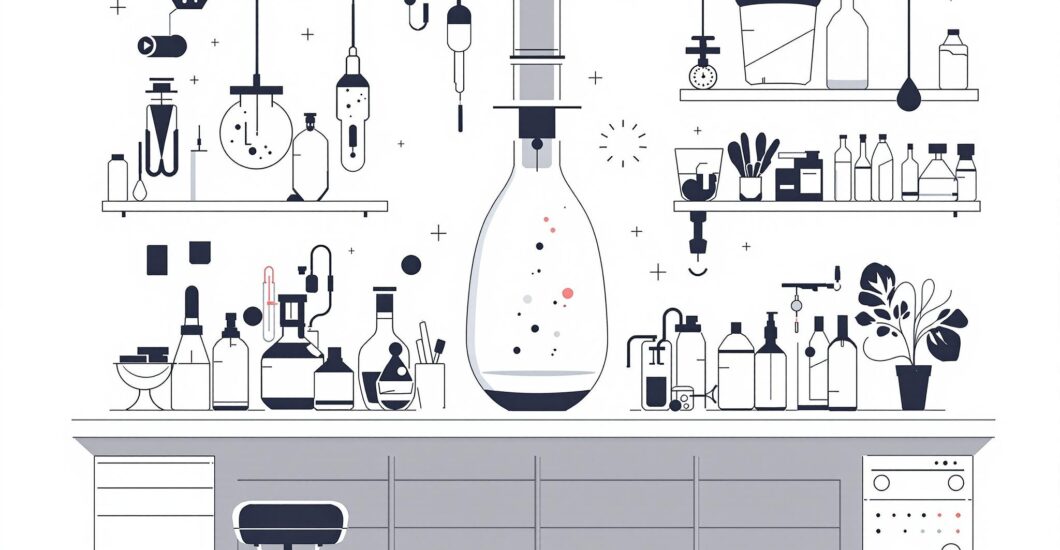2025 Could Be the Year AI Truly Transforms the Pharmaceutical Sector
As we stand on the brink of a technological revolution, 2025 is poised to be a landmark year for the pharmaceutical sector, particularly in the realm of artificial intelligence (AI). With advancements in machine learning and data analysis, AI is not only streamlining drug discovery but also personalizing patient treatment like never before. Imagine a world where medication is tailored to your genetic makeup, or where potential adverse effects are predicted before drugs even reach the market. This article dives deep into how AI is set to reshape the pharmaceutical landscape, looking at its impact on research and development, clinical trials, patient engagement, and regulatory compliance. The future is closer than we think, and it’s powered by AI.
The Revolution in Drug Discovery
The drug discovery process has traditionally been time-consuming and costly, often taking over a decade and billions of dollars to bring a new drug to market. However, AI is fundamentally changing this paradigm. By employing deep learning algorithms, researchers can sift through vast datasets to identify potential drug candidates much faster than through conventional methods. For instance, AI can analyze the genetic information of various diseases, predicting how different compounds might interact with biological targets.
This data-driven approach not only accelerates the identification of viable drugs but also allows for the exploration of new therapeutic pathways. In 2025, we can expect to see AI-driven platforms enabling pharmaceutical companies to predict which compounds have the highest probability of success, significantly reducing the time and cost associated with drug development.
Transforming Clinical Trials
Clinical trials are essential for ensuring the safety and efficacy of new treatments. However, they often face challenges such as patient recruitment, retention, and data management. AI holds the key to overcoming these hurdles. By leveraging AI algorithms, researchers can better match patients with trials tailored to their specific conditions, improving enrollment rates and ensuring a diverse participant pool. Moreover, AI can monitor real-time data during trials, enabling early detection of potential risks and drug interactions.
As we look forward to 2025, expect AI to not only streamline the logistics of clinical trials but also enhance data analysis after trials conclude. Advanced machine learning models will be designed to unveil insights that were previously obscured, allowing for more robust conclusions and faster approvals. This transformative approach could shorten trial phases and bring life-saving drugs to patients more rapidly.
Enhancing Patient Engagement
Patient engagement has emerged as a critical component of modern healthcare, and AI is well-positioned to enhance this aspect within pharmaceuticals. Intelligent chatbots and virtual health assistants powered by AI can provide patients with personalized information about their medications, lifestyle changes, and treatment plans. This technology fosters a more active role for patients in managing their health, leading to improved adherence and outcomes.
In 2025, we can envision a scenario where AI not only assists patients but also gathers and analyzes their feedback to inform drug development and clinical practices. Such patient-centric solutions will empower individuals to share their experiences, significantly influencing the future of drug formulation and marketing strategies.
Navigating Regulatory Challenges with AI
As AI technology continues to evolve, so too do the regulatory landscapes governing its use in pharmaceuticals. However, with the right applications, AI can enhance compliance efforts significantly. By automating documentation, tracking compliance metrics, and predicting potential regulatory hurdles, pharmaceutical companies can navigate the complex approval processes more effectively.
As we approach 2025, regulatory bodies will likely adapt their frameworks to accommodate AI-driven solutions. This evolution will require a collaborative effort between AI innovators and regulators, ensuring that new technologies are safely integrated into the pharmaceutical sector, ultimately leading to more innovations reaching the market.
Conclusion
The pharmaceutical industry stands at a crossroads, with AI poised to drive unprecedented transformations by 2025. From accelerating drug discovery and streamlining clinical trials to enhancing patient engagement and navigating regulatory landscapes, the implications of AI are profound. As we embrace these changes, it becomes essential to recognize the importance of responsible AI development and its integration into healthcare systems. The potential benefits are immense, and as we move closer to 2025, the pharmaceutical sector is set to harness AI’s power—revolutionizing how we develop, test, and deliver life-saving treatments.


